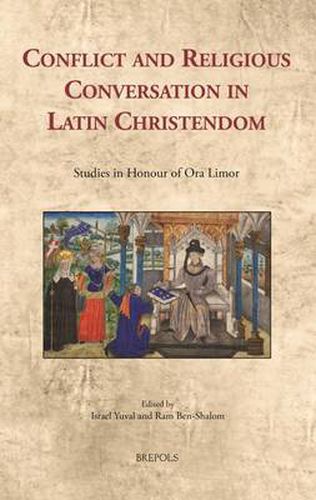Readings Newsletter
Become a Readings Member to make your shopping experience even easier.
Sign in or sign up for free!
You’re not far away from qualifying for FREE standard shipping within Australia
You’ve qualified for FREE standard shipping within Australia
The cart is loading…






The literature against the Jews (contra Iudeos) was crucially influential in the shaping of Christianity during the centuries following the crucifixion, particularly during the period when Christianity remained outside official Roman toleration. And yet, this phenomenon did not decline in the Middle Ages when Christianity emerged as the supreme power in the western world and Judaism could no longer threaten it in any way. The Jewish response to this literary practice did not arise for some time, yet from the twelfth century onwards, the effort to counter Christian ideological attacks became a central intellectual activity and a pressing concern on the part of Jewish scholars in the West. Although both Latin and Hebrew polemics were often intended, first and foremost, for local audiences in order to satisfy local needs and intellectual demands, they also engaged each other, and raised urgent theological and cultural questions in doing so. This cultural discourse did not just find expression in polemical literature (Nizahon and Adversus Iudaeos) but also in a variety of other representations and daily practices. This collection of studies is devoted to an examination of the significance of this phenomenon as a longue duree process, and pursues its concerns from a variety of innovative perspectives that join together authoritative scholars from the field of Jewish-Christian relations.
$9.00 standard shipping within Australia
FREE standard shipping within Australia for orders over $100.00
Express & International shipping calculated at checkout
The literature against the Jews (contra Iudeos) was crucially influential in the shaping of Christianity during the centuries following the crucifixion, particularly during the period when Christianity remained outside official Roman toleration. And yet, this phenomenon did not decline in the Middle Ages when Christianity emerged as the supreme power in the western world and Judaism could no longer threaten it in any way. The Jewish response to this literary practice did not arise for some time, yet from the twelfth century onwards, the effort to counter Christian ideological attacks became a central intellectual activity and a pressing concern on the part of Jewish scholars in the West. Although both Latin and Hebrew polemics were often intended, first and foremost, for local audiences in order to satisfy local needs and intellectual demands, they also engaged each other, and raised urgent theological and cultural questions in doing so. This cultural discourse did not just find expression in polemical literature (Nizahon and Adversus Iudaeos) but also in a variety of other representations and daily practices. This collection of studies is devoted to an examination of the significance of this phenomenon as a longue duree process, and pursues its concerns from a variety of innovative perspectives that join together authoritative scholars from the field of Jewish-Christian relations.